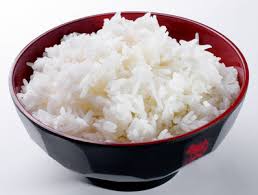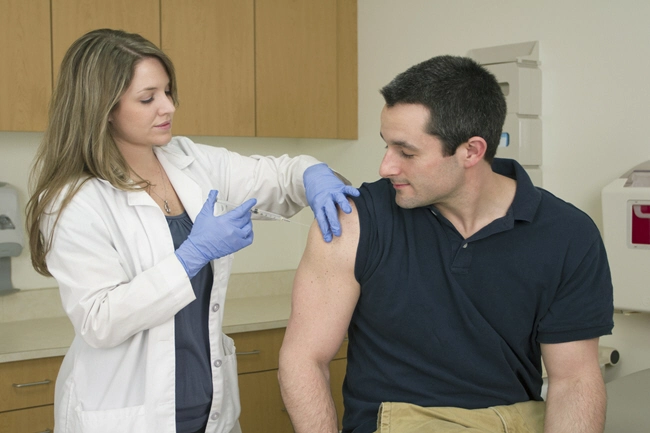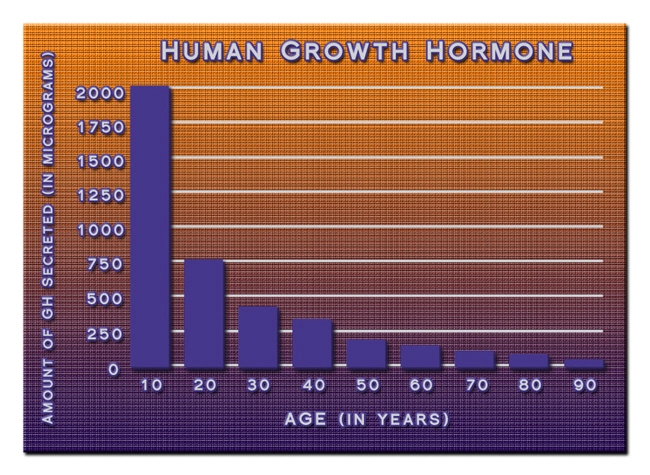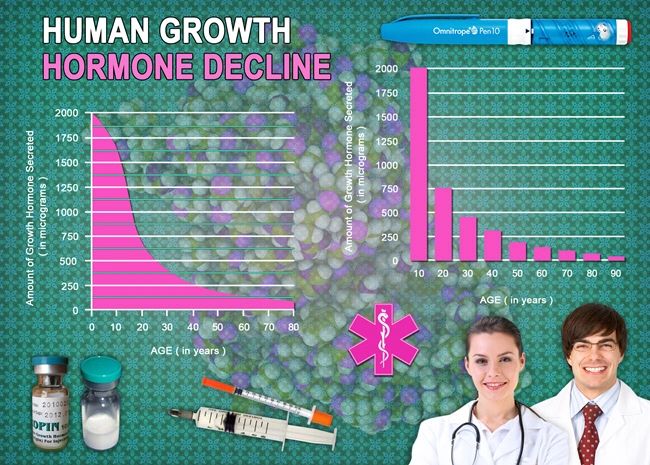
Video Link: https://vimeo.com/271254852
Video Download: Click Here To Download Video
Video Stream: Click Here To Stream Video
Human Growth Hormone (HGH) Replacement Therapy has been repeatedly shown to be a potent weapon in the battle against aging and the afflictions it brings. Our growth hormone treatment regimens are world-class, cutting-edge, safe, and cost-effective.
But is there anything else you can do to ensure you receive the maximum benefits from our treatments? YES! Nutrition is crucial, and that means not only what you eat and what you don't eat, but when you eat.
What and when you eat at the end of the day can have a large impact on your body. If you eat the right thing at the right time, you can lose fat while you sleep. Eat the wrong thing at the wrong time, and you can plan on waking up with a little more body fat in the morning.
 To successfully lose weight, you'll need to stop eating two hours before going to bed. You should not feel hungry before bed, but you should also not feel full.
To successfully lose weight, you'll need to stop eating two hours before going to bed. You should not feel hungry before bed, but you should also not feel full.
When you're trying to lose weight, going to bed at night feeling slightly hungry is a good thing.
It's your body telling you that what you did that day is working and you're losing body fat. If you don't feel this way when going to bed, you're probably not losing fat.
Now let's say you follow your brain's directive and eat close to bedtime, your body will not dip into the fat it has stored away, and will probably even save some more.
Every time you eat, your metabolism increases slightly. However, this effect is minimized late at night. You don't get the same metabolism-boosting benefit when you eat just before bed, since a couple of hours after dinner, your body will start preparing for sleep.
The Damage Caused by Late-Night Eating
This natural slowing down of your metabolic rate overrides any metabolic boost you might get from eating. So once you hit the pillow, the only calories you're going to use are the essential calories you need to keep your heart beating and your lungs breathing and allow your eyes to move in REM sleep. This is only a minimal number of calories.
 Believe it or not, eating late at night can also inhibit your calorie-burning potential the next day. Say, for instance, that you treat yourself to some pasta and fruit at 10 PM one night and go to bed by 11 PM.
Believe it or not, eating late at night can also inhibit your calorie-burning potential the next day. Say, for instance, that you treat yourself to some pasta and fruit at 10 PM one night and go to bed by 11 PM.
When your alarm goes off the next morning at seven, the last thing on your mind is going to be breakfast, because you're still full from the pasta and fruit you ate the night before.
Chances are you're going to skip breakfast and lose all the great metabolism-boosting benefits you'd get from eating a balanced morning meal. Also, some different studies have suggested that individuals who skip breakfast are more likely to overeat and make terrible food choices, during lunch and dinner.
Important Tips for Ensuring Maximum Growth Hormone Release While Sleeping
Overeating food, especially starchy carbohydrates, late at night increases your body's fat stores.
Eating high-glycemic carbs (pasta, potatoes, white rice, sugar, etc.) right before bed will spike your insulin levels and lower nighttime Human Growth Hormone (HGH) production.
production.
This is a problem, because not only will reducing nighttime Human Growth Hormone production make you fat, but it will also speed up the aging process.
About 80% of this fat-burning and anti-aging “super hormone” is released during sleep.
Here are a few simple tips to make sure you get the most from your last meal of the day:
Eat about 3 hours before going to bed. You'll have some time to burn off calories, but you probably won't get too hungry before going to sleep.
Eat frequently throughout the day -- small, healthy meals and snacks spaced about 3 hours a part to minimize hunger cravings at night.
Your last meal should consist mainly of lean protein like chicken breast, low-fat cottage cheese, fish, turkey, and low glycemic carbohydrates like vegetables and fruits.
You should avoid all starchy carbs close to bedtimes like bread, pasta, rice, potatoes, and cereals. The only time you should be consuming these starchy carbs close to bedtime is if you work out late at night because then they will be stored in your muscles for energy instead of being stored as fat.
If you get major carb cravings right before bed, then eat some carbs. Just make sure they're the high fiber, low-glycemic types like apples, berries, peaches, plums, citrus fruit, fresh vegetables, or vegetable juice (however, check and make sure that your vegetable juice is low in sodium -- the maximum recommended daily intake of sodium is 2,300mg).
If you're currently strength training to build lean muscle, a great late-night meal option is low-fat cottage cheese or skim milk, because it is full of slowly digested casein protein.

You can increase your muscle mass and lose fat by doing one simple thing. Stop eating two or three hours before you go to sleep. Going to bed slightly hungry is actually not a bad thing for gaining muscle, losing fat, and general health.
Contact us for a FREE, no-obligation discussion concerning the miraculous benefits of growth hormone restoration.
References
How Eating Carbs at Night Affects the Growth Hormone
https://www.livestrong.com/article/498071-how-eating-carbs-at-night-affects-the-growth-hormone/
Contact Us Today For A Free Consultation
Dear Patient,
Once you have completing the above contact form, for security purposes and confirmation, please confirm your information by calling us.
Please call now: 1-800-380-5339.
Welcoming You To Our Clinic, Professor Tom Henderson.

- Obese Patients Have a Higher COVID-19 Mortality Risk Than the General Public [Last Updated On: January 24th, 2025] [Originally Added On: August 21st, 2020]
- The Health and Hormone Balancing Qualities of Broccoli [Last Updated On: August 11th, 2025] [Originally Added On: August 27th, 2020]
- What to eat to boost testosterone [Last Updated On: September 14th, 2025] [Originally Added On: December 14th, 2020]
- Breaking a Weight Loss Plateau: How to Reduce Body Fat When Nothing Seems to be Working [Last Updated On: January 20th, 2025] [Originally Added On: February 16th, 2021]
- The Top 25 Most Nourishing and Sustaining Foods to Add to Your Diet Today for Increased Longevity [Last Updated On: January 16th, 2025] [Originally Added On: February 16th, 2021]
- Fight Inflammation and Osteoporosis with Beets! [Last Updated On: January 14th, 2025] [Originally Added On: February 18th, 2021]
- Break a Weight Loss Plateau with Apple Cider Vinegar [Last Updated On: January 14th, 2025] [Originally Added On: February 20th, 2021]
- An Intriguing Look into How Growth Hormone Production and Fasting are Linked [Last Updated On: January 18th, 2025] [Originally Added On: February 21st, 2021]
- Health Reasons for a Vegan Diet [Last Updated On: October 25th, 2025] [Originally Added On: April 2nd, 2021]
- Leafy Greens are Medicine for Your Gut [Last Updated On: September 27th, 2025] [Originally Added On: April 23rd, 2021]
- All Praise to the Spud -- the Delicious, Health-Giving Potato, That Is [Last Updated On: August 12th, 2025] [Originally Added On: June 1st, 2021]
- 16 Cancer-Causing Foods to Avoid [Last Updated On: May 21st, 2025] [Originally Added On: August 12th, 2021]
- Longevity and Anti-Aging -- The Use of Flax Seed Oil [Last Updated On: May 7th, 2025] [Originally Added On: August 17th, 2021]
- Essential Amino Acids Critical to Health and Hormone Balance [Last Updated On: June 13th, 2025] [Originally Added On: October 6th, 2021]
- Growth Hormone and Calcium [Last Updated On: January 11th, 2025] [Originally Added On: October 16th, 2021]
- Growth Hormone and Coffee [Last Updated On: January 9th, 2025] [Originally Added On: October 19th, 2021]
- The Importance of Protein in Weight Loss and Testosterone Production [Last Updated On: January 19th, 2025] [Originally Added On: October 19th, 2021]
- Testosterone, Growth Hormone, and Sugar. [Last Updated On: January 9th, 2025] [Originally Added On: October 19th, 2021]
- Testosterone, Growth Hormone, and Processed Meat [Last Updated On: January 8th, 2025] [Originally Added On: October 19th, 2021]
- Growth Hormone and Intermittent Fasting [Last Updated On: January 7th, 2025] [Originally Added On: October 19th, 2021]
- Growth Hormone and the Importance of Nutrition [Last Updated On: January 7th, 2025] [Originally Added On: October 20th, 2021]
- Growth Hormone Stops Inflammation! [Last Updated On: January 8th, 2025] [Originally Added On: October 20th, 2021]
- Growth Hormone and Sugar Addiction [Last Updated On: January 4th, 2025] [Originally Added On: October 20th, 2021]
- Growth Hormone and Red Meat [Last Updated On: January 5th, 2025] [Originally Added On: October 20th, 2021]
- A Natural Acid Found in Apples Prevents Muscle Loss AKA Sarcopenia [Last Updated On: January 10th, 2025] [Originally Added On: October 20th, 2021]
- Growth Hormone and Organic Foods. [Last Updated On: January 3rd, 2025] [Originally Added On: October 21st, 2021]
- Growth Hormone and Acidosis [Last Updated On: January 5th, 2025] [Originally Added On: October 21st, 2021]
- Growth Hormone Food Choices [Last Updated On: January 2nd, 2025] [Originally Added On: October 21st, 2021]
- Growth Hormone and Cholesterol: the Surprising Link [Last Updated On: January 6th, 2025] [Originally Added On: October 22nd, 2021]
- Growth Hormone and Weight Loss [Last Updated On: January 3rd, 2025] [Originally Added On: October 22nd, 2021]
- Growth Hormone Reduces Inflammation [Last Updated On: January 4th, 2025] [Originally Added On: October 24th, 2021]
- What You Eat Impacts Both Your Sleep AND Your Growth Hormone Production [Last Updated On: January 10th, 2025] [Originally Added On: October 24th, 2021]
- Growth Hormone Lowers Blood Sugar [Last Updated On: January 6th, 2025] [Originally Added On: October 24th, 2021]
- Testosterone and Magnesium [Last Updated On: May 22nd, 2025] [Originally Added On: April 28th, 2022]
- The Beneficial Functions of Brown Fat vs. White Fat [Last Updated On: May 26th, 2025] [Originally Added On: May 3rd, 2022]
- MOTS-c Peptide for Weight Loss and Muscle Building [Last Updated On: June 11th, 2025] [Originally Added On: November 7th, 2022]
- Looking to lose weight? Add this ingredient to meals [Last Updated On: September 24th, 2025] [Originally Added On: December 7th, 2022]
- The many health benefits of black tea [Last Updated On: September 23rd, 2025] [Originally Added On: December 13th, 2022]
- Raw Food Benefits [Last Updated On: September 20th, 2025] [Originally Added On: January 18th, 2023]
- Brain Foods that Work Together with HGH to Improve Mental Sharpness [Last Updated On: February 14th, 2025] [Originally Added On: March 9th, 2024]








